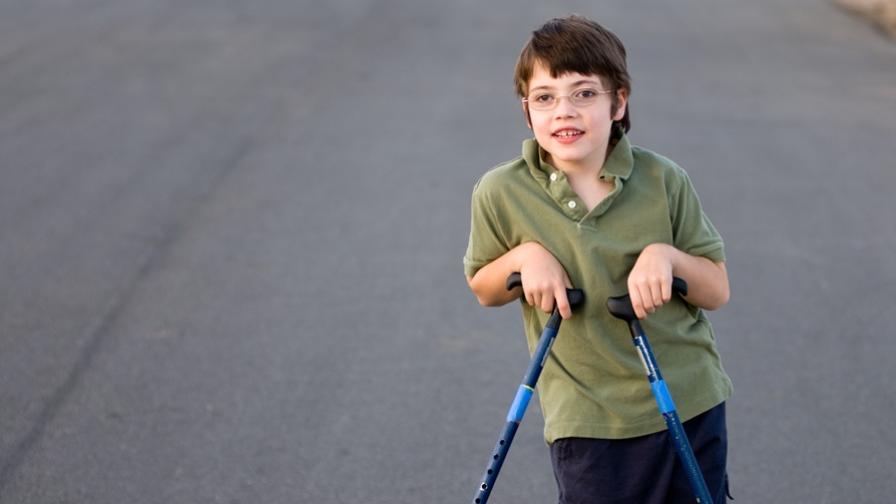
Cerebral palsy, the most common serious physical disability in childhood, often affects mobility due to bone, muscle and joint deformities. SEMLS is widely used across the UK to address these issues, but there has been limited data about its effectiveness, or which children benefit most from this surgery.
Led by surgeon Mr Tim Theologis, researchers collected information on 203 children who were offered SEMLS at 22 centres across the UK. They followed up on how the children were doing for two years by talking to the surgeons and families of the children – focusing on what mattered most to them.
The study showed, through computerised gait analysis and parental feedback, that SEMLS significantly improved the way children walked. However, there were no substantial gains in their overall physical ability, in terms of how far or fast they could walk, compared to those who did not have the surgery.
Compared to children who had undergone SEMLS, those who had not had the procedure experienced a decline in their walking abilities over time – and parents also noticed a worsening in how they viewed their child’s walking.
The study also revealed considerable variations in clinical practice among centres undertaking SEMLS across the UK, particularly in how children are selected for this surgery and how their outcomes are measured.
This work is set to help establish the first national benchmark for the expected outcomes from SEMLS in the UK. It also identified areas for further research, particularly to address the geographical variations in clinical practice and help improve outcomes for all children with cerebral palsy, regardless of where they live.
Mr Theologis, based at Oxford University Hospitals NHS Foundation Trust, said: “We have collected information on the results of surgery in many children with cerebral palsy and compared them with children who did not pursue treatment. This can be used for future benchmarking. It can also be used to advise children and their families on the results they can expect from this type of surgery.”
Action Medical Research funding facilitated the first ever national study of orthopaedic surgery for children with cerebral palsy in the UK”
This research was generously supported by The Rooney Foundation and The Linder Foundation.
